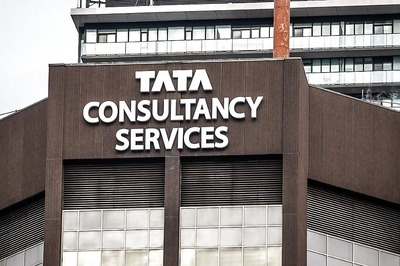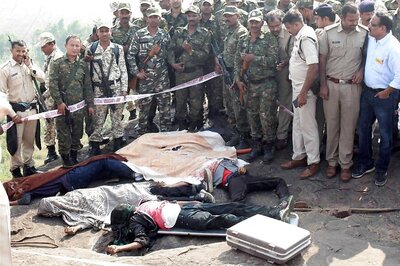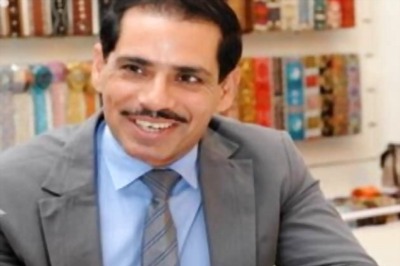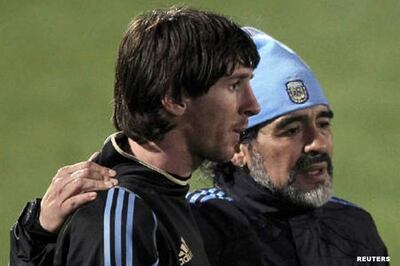
views
What began as a debutant's address to the Congress party's plenary session earlier this year in Hyderabad has developed swiftly into a more substantial foray. Signalling his intent to focus on Uttar Pradesh, in a widely reported comment Rahul said, "I am ready to take the responsibility of (leading) the party in the state if the high command so asks".
A look at the electoral statistics in UP reveals the scale of the challenge before him: Out of 80 MP's elected to the Lok Sabha from UP, the Congress currently has just nine members. The same ignoble picture exists at the provincial level: Out of a total of 403 MLA's, the Congress has a mere 16 legislators. Hemmed by the caste-based machinations of the BSP and the Samajwadi party, and a decline in its organisational network, the Congress has floundered. Its claims to the affections of the middle classes are contested by the BJP.
UP is critical to the Congress party's long-term vision of political dominance. It will also be crucial in affirming Rahul's political credentials. The party's recent advocacy of reservations has very little to do with achieving substantive equality in society and everything to do with political arithmetic and capturing a casteist vote bank. Ironically, the decrepit condition of the Congress party in UP may work in Rahul's favour: When you have already hit rock bottom, you cannot plunge to further depths.
There are clear similarities between Rahul Gandhi's pronouncements today and the rhetoric of a younger Rajiv Gandhi. In a revealing interview with The Sunday Times last week, speaking of his father, Rahul maintained that "he (Rajiv) was doing certain things to modernise the country and he fell short...he was bridging the gap between modern and traditional India". It is this sense of a father's unfinished business that is driving the son's ambition. However, as Rahul Gandhi's sets out on his political voyage to fulfil his father's legacy, at the same time he ought to carefully examine his father's political graph. There are valuable lessons to be gleaned from such an examination.
When Rajiv Gandhi assumed office as Prime Minister, he ushered an air of optimism missing in the polity. In this context, Shashi Tharoor has noted lucidly "Rajiv Gandhi was unlike any Indian politician I had met...he had nothing in common with professional politicians we had taught ourselves to despise...instead of the visionless expediency that had been his mother's credo, Rajiv offered transparent sincerity and conviction...he spoke of liberalisation, of technology, of modernity...to Indians like me this was heady stuff...".
But what happened next in Rajiv's political narrative is also equally worth recalling. The optimism faded and the dream turned sour. Difficult political decisions and well meaning principles were sacrificed in favour of the comfort zone of compromise. The regression was astounding. The Rajiv Gandhi that spoke of modernisation turned into a politician that submitted to the overturning of the Shah Bano judgment by the enactment of the perversely titled "The Muslim Women's (Protection of Rights Upon Divorce) Act". The Bofors scandal that followed besmirched his government's reputation and eventually led to its ouster.
So while Rahul Gandhi embarks on a wider political journey, it should be instructive for him to genuflect on the impulses that led to a transformation of his father from the promise of a visionary moderniser to the banal reality of yet another politician. And as the philosopher George Santayana famously observed: Those who forget the past are condemned to repeat it.
Rishabh Bhandari is a lawyer at a global law firm in London. These are his personal views.
first published:May 08, 2006, 12:14 ISTlast updated:May 08, 2006, 12:14 IST
window._taboola = window._taboola || [];_taboola.push({mode: 'thumbnails-mid-article',container: 'taboola-mid-article-thumbnails',placement: 'Mid Article Thumbnails',target_type: 'mix'});
let eventFire = false;
window.addEventListener('scroll', () => {
if (window.taboolaInt && !eventFire) {
setTimeout(() => {
ga('send', 'event', 'Mid Article Thumbnails', 'PV');
ga('set', 'dimension22', "Taboola Yes");
}, 4000);
eventFire = true;
}
});
window._taboola = window._taboola || [];_taboola.push({mode: 'thumbnails-a', container: 'taboola-below-article-thumbnails', placement: 'Below Article Thumbnails', target_type: 'mix' });Latest News
It has been a very busy stretch lately for Rahul Gandhi. As campaign manager for his mother's by-election in Rae Bareli, the obedient son has left no stone unturned to ensure her re-election to the Lok Sabha. Amid the heat and dust of a scorching summer, he has trudged on from one rally to another with unflappable enthusiasm. Significantly though, in shepherding the campaign, Rahul Gandhi has also begun the process of carving a larger political role for himself within the Congress. In the soap opera of Indian politics, another hereditary dimension is added.
What began as a debutant's address to the Congress party's plenary session earlier this year in Hyderabad has developed swiftly into a more substantial foray. Signalling his intent to focus on Uttar Pradesh, in a widely reported comment Rahul said, "I am ready to take the responsibility of (leading) the party in the state if the high command so asks".
A look at the electoral statistics in UP reveals the scale of the challenge before him: Out of 80 MP's elected to the Lok Sabha from UP, the Congress currently has just nine members. The same ignoble picture exists at the provincial level: Out of a total of 403 MLA's, the Congress has a mere 16 legislators. Hemmed by the caste-based machinations of the BSP and the Samajwadi party, and a decline in its organisational network, the Congress has floundered. Its claims to the affections of the middle classes are contested by the BJP.
UP is critical to the Congress party's long-term vision of political dominance. It will also be crucial in affirming Rahul's political credentials. The party's recent advocacy of reservations has very little to do with achieving substantive equality in society and everything to do with political arithmetic and capturing a casteist vote bank. Ironically, the decrepit condition of the Congress party in UP may work in Rahul's favour: When you have already hit rock bottom, you cannot plunge to further depths.
There are clear similarities between Rahul Gandhi's pronouncements today and the rhetoric of a younger Rajiv Gandhi. In a revealing interview with The Sunday Times last week, speaking of his father, Rahul maintained that "he (Rajiv) was doing certain things to modernise the country and he fell short...he was bridging the gap between modern and traditional India". It is this sense of a father's unfinished business that is driving the son's ambition. However, as Rahul Gandhi's sets out on his political voyage to fulfil his father's legacy, at the same time he ought to carefully examine his father's political graph. There are valuable lessons to be gleaned from such an examination.
When Rajiv Gandhi assumed office as Prime Minister, he ushered an air of optimism missing in the polity. In this context, Shashi Tharoor has noted lucidly "Rajiv Gandhi was unlike any Indian politician I had met...he had nothing in common with professional politicians we had taught ourselves to despise...instead of the visionless expediency that had been his mother's credo, Rajiv offered transparent sincerity and conviction...he spoke of liberalisation, of technology, of modernity...to Indians like me this was heady stuff...".
But what happened next in Rajiv's political narrative is also equally worth recalling. The optimism faded and the dream turned sour. Difficult political decisions and well meaning principles were sacrificed in favour of the comfort zone of compromise. The regression was astounding. The Rajiv Gandhi that spoke of modernisation turned into a politician that submitted to the overturning of the Shah Bano judgment by the enactment of the perversely titled "The Muslim Women's (Protection of Rights Upon Divorce) Act". The Bofors scandal that followed besmirched his government's reputation and eventually led to its ouster.
So while Rahul Gandhi embarks on a wider political journey, it should be instructive for him to genuflect on the impulses that led to a transformation of his father from the promise of a visionary moderniser to the banal reality of yet another politician. And as the philosopher George Santayana famously observed: Those who forget the past are condemned to repeat it.
Rishabh Bhandari is a lawyer at a global law firm in London. These are his personal views.



















Comments
0 comment